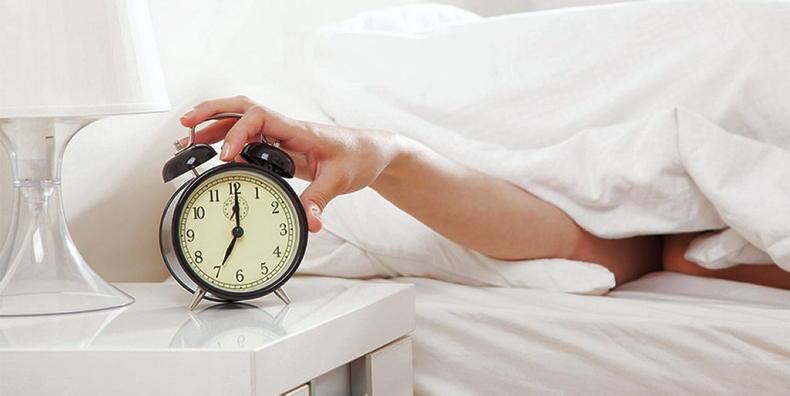PERHAPS, like me, you have experienced difficulty with sleep. Hopefully, after implementing some of the advice I will share with you today, you will, like me, finally get to experience the value of a good night’s sleep.
A good night’s sleep is just as important as regular exercise and a healthy diet. Research shows that poor sleep has immediate negative effects on your hormones, exercise performance and brain function. It can also cause weight gain and increase disease risk in both adults and children.
By contrast, good sleep can help you eat less, exercise better and be healthier. Yet over the past decades sleep quality and quantity has declined. Getting a good night’s sleep is one of the most important things you can do. Here are a number of tips to sleep better at night.
1. Increase bright light exposure during the day
The body has a natural time-keeping clock known as the circadian rhythm. It affects the brain, body and hormones, helping you stay awake and telling your body when it’s time to sleep. Natural sunlight, or bright light during the day, helps keep your circadian rhythm healthy. This improves daytime energy, as well as night-time sleep quality and duration.
People with insomnia have found daytime bright light exposure improved their sleep quality and duration. It also reduced the time it took to fall asleep significantly. A similar study in older adults found that two hours of bright light exposure during the day increased the amount of sleep by two hours and sleep efficiency by 80%.
Daily light exposure will help you even if you experience average sleep. If this is not practical, invest in an artificial bright light device or bulbs.
2. Reduce blue light exposure in the evening
Exposure to light during the day is beneficial, but night-time light exposure has the opposite effect. This is due to its effect on your circadian rhythm, tricking your brain into thinking it is still daytime. This reduces hormones like melatonin which help you relax and get deep sleep.
Blue light, emitted by electronic devices like smartphones and computers in large amounts, is the worst. Some methods you can use to reduce night-time blue light exposure include wearing glasses that block blue light, installing apps to block blue light on your laptop, computer or smartphone. You should consider not watching television and turning off any bright lights two hours before bed.
3. Don’t consume caffeine late in the day
Caffeine has numerous benefits; a single dose can enhance focus, energy and sports performance. However, when consumed late in the day, caffeine stimulates your nervous system and may stop your body from naturally relaxing at night. Consuming caffeine up to six hours before bed significantly worsens sleep quality for some.
Caffeine can stay elevated in your blood for six to eight hours. If you do crave a cuppa in the late afternoon or evening, stick with decaffeinated coffee.
4. Reduce irregular or long daytime naps
While short power naps are beneficial, long or irregular napping during the day can negatively affect your sleep. It confuses your internal clock, meaning that you struggle to sleep at night. Napping for 30 minutes or less can enhance daytime brain function, but longer naps can harm sleep quality.
However, if you take regular daytime naps and sleep well, you shouldn’t worry. The effects of napping depend on each individual.
5. Try to sleep and wake at consistent times
Your body’s circadian rhythm functions on a set loop, aligning itself with sunrise and sunset. Being consistent with your sleep and waking times can aid long-term sleep quality. Irregular sleep patterns can alter your circadian rhythm and levels of melatonin, which signal your brain to sleep.
If you struggle with sleep, try to get in the habit of waking up and going to bed at similar times. After several weeks, you may not even need an alarm.
6. Consider supplements
Several supplements can induce relaxation and help you sleep, including lavender and magnesium. It is advisable to seek professional advice before embarking on such a strategy.
7. Don’t drink alcohol
Having a couple of drinks at night can negatively affect your sleep and hormones. Alcohol is known to cause or increase the symptoms of sleep apnoea, snoring and disrupted sleep patterns. It also alters night-time melatonin production.
8. Optimize your environment
The bedroom environment and its setup are key to getting a good night’s sleep. These include temperature, noise, external lights and furniture arrangement. To optimize your bedroom environment try to minimize external noise, light and artificial lights from devices like alarm clocks. Make sure your bedroom is a quiet, relaxing, clean and enjoyable place.
9. Get your bedroom temperature right
Body and bedroom temperature can profoundly affect sleep quality. During the summer it can be very hard to get a good night’s sleep when it’s too warm. A study found that bedroom temperature affected sleep quality more than external noise. Around 70°F, 20°C, seems to be a comfortable temperature for most people. Test different temperatures to find out which is most comfortable for you.
10. Don’t eat late
Eating a large meal late at night may negatively affect sleep quality and the natural release of HGH and melatonin. That said, the quality and type of your late-night snack may play a role as well.
11. Relax and clear your mind
Some people have a pre-sleep routine that helps them relax. Relaxation techniques before bed have been shown to improve sleep quality and are common technique used to treat insomnia. These include listening to relaxing music, reading, taking a hot bath, meditating and deep breathing. Find what works best for you.
12. Rule out a sleep disorder
An underlying health condition may be the cause of sleep problems. One common one is sleep apnoea, which causes inconsistent and interrupted breathing. People with this disorder stop breathing repeatedly while sleeping. One review claimed 24% of men and 9% of women have sleep apnoea.
Other common medically diagnosed issues include sleep movement disorders and circadian rhythm sleep/wake disorders, common in shift workers. If you’ve always struggled with sleep, it may be wise to consult your doctor.
13. Comfort in the room
Some people wonder why they often sleep better in a hotel. Apart from the relaxing environment, bed quality can also affect sleep. It’s recommended that you upgrade your bedding every five to eight years, and choose your pillows with care.
14. Exercise
Exercise is one of the best ways to improve your sleep and health. It can enhance all aspects of sleep and has been used to reduce symptoms of insomnia. A study in older adults showed that exercise halved the amount of time it took to fall asleep, and provided 40 more minutes of sleep at night.
In people with severe insomnia, exercise offered more benefits than most drugs. Exercise reduced time to fall asleep by 55%, total night wakefulness by 30%, and anxiety by 15%, while increasing total sleep time by 18%.
Although daily exercise is key for a good night’s sleep, performing it too late in the day may cause problems. This is due to the stimulatory effect of exercise, which increases alertness and hormones. However, some studies show no negative effects, so it clearly depends on the individual.
15. No liquids before bed
Nocturia is the medical term for excessive urination during the night. It affects sleep quality and daytime energy. Drinking large amounts of liquids before bed can lead to similar symptoms, though some people are more sensitive than others. Although hydration is vital, it’s wise to reduce fluid intake in the late evening. Don’t drink any fluids two hours before going to bed. You should use the bathroom right before going to bed, as this may decrease your chances of waking in the night.
Summary
Sleep plays a key role in your health. If you’re interested in optimal health and wellbeing, it’s recommended that you make sleep a top priority.


 This is a subscriber-only article
This is a subscriber-only article
 It looks like you're browsing in private mode
It looks like you're browsing in private mode










SHARING OPTIONS: